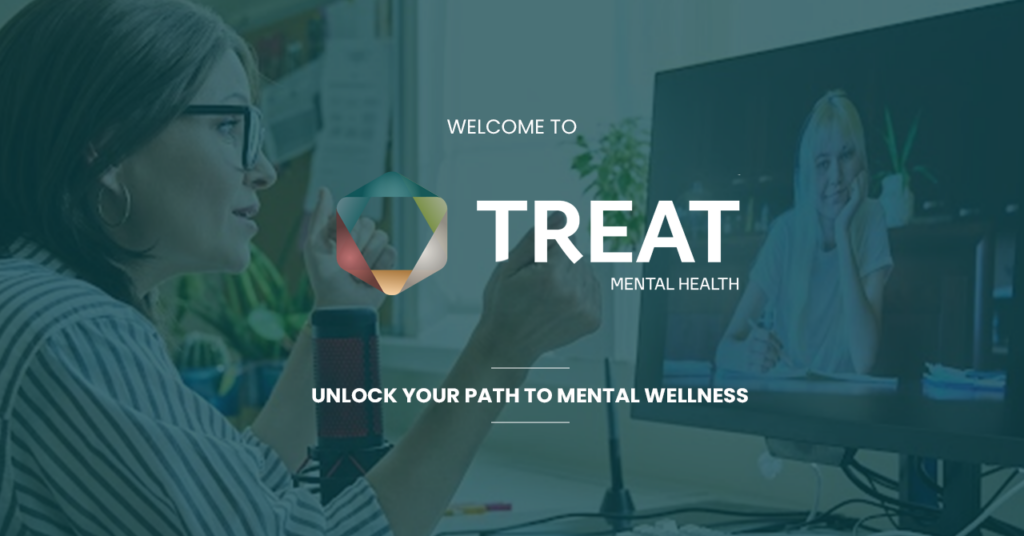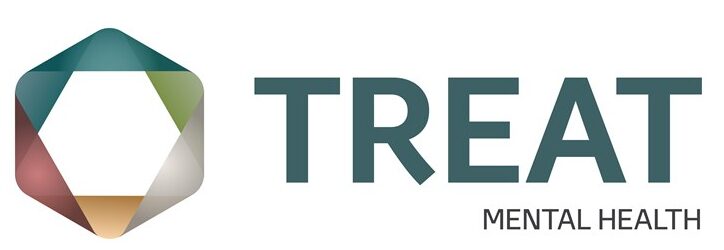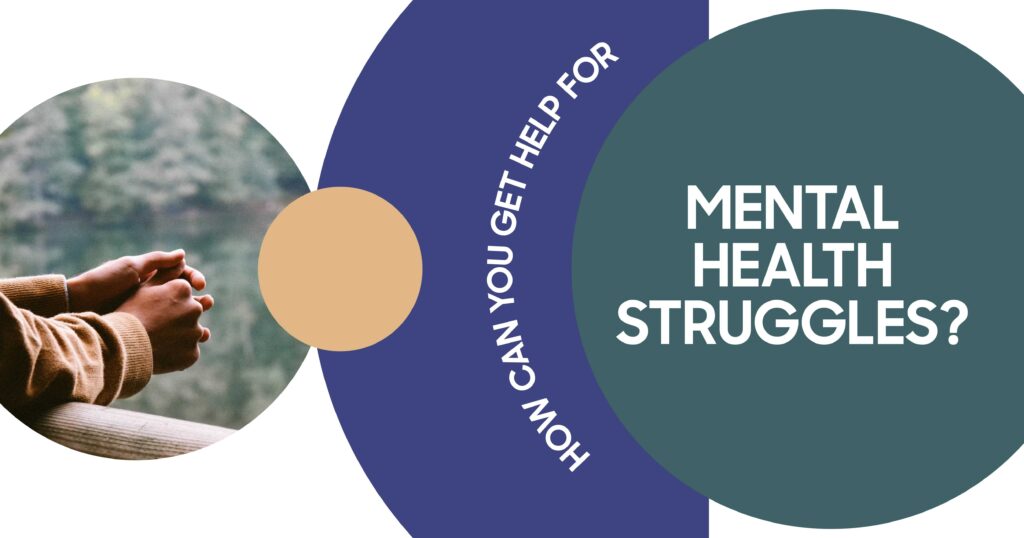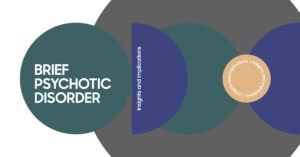The good news is that support is available, and recovery is possible. Whether you’re dealing with anxiety, depression, OCD, trauma, or just feeling overwhelmed by life. Understanding where you can get help and how to start can make all the difference. In this guide, we’ll walk you through the steps to get help, explore the different types of support, and show you that finding help doesn’t have to feel so difficult.
How Can You Get Help for Mental Health Struggles?
The first essential move toward healing from mental health problems starts with getting help from others. Seeking help requires a lot of courage, although the process itself may feel frightening. Mental health professionals, good friends, and relatives serve as pathways toward finding guidance. Help is available through both confiding in trusted relationships or meeting with professional therapists who can guide you through your challenges.
Taking the First Step Toward Support
Getting started with help-seeking remains the biggest hurdle because it requires making the first important move toward assistance. The phenomenon of fear, shame, and confusion prevents numerous individuals from looking for professional assistance. Getting help reveals strength because such a move leads to improved mental well-being.
Here’s what you can do:
- Self-awareness of mental distress coupled with personal recognition of your right to support represents the beginning of transforming your situation.
- Contact someone from your family, friends, or colleagues to obtain emotional backing while they guide you to the needed resources.
- Call a professional from the mental health field to get a diagnostic evaluation from experts who will create treatment instructions that fit your personal needs.
- A wide range of sources offering instant mental health support are available through the National Suicide Prevention Lifeline, Crisis Text Line, and other hotlines.
Where to Find Help: Local and Online Options
Your recovery from mental health issues requires seeking professional help from different sources, which exist both traditionally and through internet platforms. The United States offers plenty of resources that anyone encountering mental health problems can access easily.
Local Options for Mental Health Support
Therapists and Counselors
Psychologists, social workers, and marriage and family therapists from your area offer customized treatments that are built according to your situation. To find therapists nearby, you need to search websites named Psychology Today or Therapist Finder, which let you narrow down results by their geographic location and specialty.
Community Mental Health Centers
Community mental health centers within various communities extend their services by offering counseling, psychiatric guidance, and support group membership. Community centers offer therapeutic services that operate at affordable costs and implement income-based fee reductions.
Primary Care Physicians
When you need help choosing a starting point, your primary care doctor serves as an outstanding gateway to available resources. Mental health assessment services from your primary care doctor will lead to their initial guidance, followed by professional referrals to psychiatrists and therapists.
Support Groups
Support groups in your local area create a community experience with people who undergo similar mental health challenges. People dealing with psychiatric problems can join peer-directed support groups from NAMI (National Alliance on Mental Illness) alongside receiving family support from the organization.
Online Mental Health Resources
Online Therapy Services
BetterHelp and Talkspace, among other online therapy sites, allow clients to access licensed therapists through video calls, text conversations, and phone appointments. The platforms provide accessibility through convenient services.
Mental Health Apps
The market contains multiple mental health applications that enable users to log their emotional states and control their anxiety levels while finding helpful resources for users.
Telemedicine Services
At many healthcare facilities, you can get telemedicine service access to view mental health specialists virtually without needing to leave your household. The services enable patients to access therapy sessions with psychiatric evaluations and supply needed medications.
Online Support Communities
The Reddit community, 7 Cups, and Mental Health America website function as virtual support spaces where people can exchange stories and provide and receive ground-level support from people going through similar situations.
Different Types of Mental Health Professionals Explained
Here’s a table summarizing the different types of mental health professionals and what they do:
| Mental Health Professional | What They Do | When to See Them |
| Psychiatrists | Professionals diagnose disorders while prescribing drugs for patients and conducting therapeutic approaches. | Bipolar disorder, together with schizophrenia and depression, requires severe treatment with medication. |
| Psychologists | Provide therapy (individual, group, or family), administer psychological assessments, and conduct research. | For therapy, psychological evaluations, anxiety, depression, and PTSD. |
| Marriage and Family Therapists (MFTs) | Help with relationship issues, family conflicts, and individual therapy in the context of family dynamics. | For relationship or family issues, marital conflict, and family history affecting mental health. |
| Mental Health Coaches | Offer coaching, support personal development, and focus on improving mental health. | For guidance on life changes, managing stress, or emotional well-being. |
| Substance Abuse Counselors | Provide counseling and therapy for those with addiction, and assist in recovery programs. | If dealing with substance abuse or addiction, needing recovery support. |
| Art Therapists and Music Therapists | Use creative therapies (painting, drawing, music, movement) to help individuals express themselves. | If looking for a creative approach to healing and self-expression. |
Knowing When It’s Time to Ask for Help
Needing medical intervention for mental health conditions sometimes remains elusive to identify, yet obtaining needed care leads to healing. Taking action for help becomes essential when persistent emotional symptoms such as sadness or anxiety, together with hopeless feelings, start affecting your everyday life. Time is a critical factor in seeking professional help since early intervention makes treatment easier for mental health conditions. The decision to ask for help reveals your strength because it marks the beginning of better well-being.
What to Expect From Therapy or Counseling
During the start of therapy or counseling, patients form a trusting bond with mental health professionals who show them different therapeutic methods for healing. Here’s what to expect:
- All information you share with your therapist remains confidential, with only two exceptions, which involve your immediate danger to yourself or others.
- The therapy techniques depend on what your treatment needs are.
- You and your therapist work together to establish targets that will confront your emotional control, together with your behavioral changes.
- Therapy sessions evolve over time because patients explore stress reduction through counseling and mental illness management.
- An active commitment from you creates essential conditions that enable therapy to provide the most useful outcomes.
Can You Get Help for Free? Exploring Affordable Support Options
| Support Option | Description |
| Community Mental Health Centers | Local health organizations are offering therapy on a sliding scale based on income. |
| Nonprofit Organizations | Organizations like NAMI offer free counseling and mental health resources. |
| Employee Assistance Programs (EAPs) | Free short-term therapy is provided by employers as part of benefits packages. |
| Crisis Helplines and Text Lines | Free, 24/7 confidential support through services like the National Suicide Prevention Lifeline (988). |
| University Counseling Services | Free counseling is offered to students, often provided by graduate students under supervision. |
Finding the Right Therapist or Provider for You
Effective care demands the selection of the appropriate therapist or mental health provider. Selecting the right mental health provider means spending enough time on choosing someone whose expertise and therapeutic approach connect well with your needs. If you’ve been wondering where you can get help that truly fits your needs, consider starting with these steps:
- Determine which healthcare service you require, ranging from therapy counseling to psychiatric evaluation or medication management.
- Select a healthcare practitioner who focuses on your specific mental health issues, including anxiety disorders, depression, and eating disorder management.
- Each therapist follows a different school of thought that includes CBT alongside DBT and psychodynamic therapy. Select the therapeutic approach that appeals to you the most.
- Search for psychiatrists whose services are approved by your insurance coverage, yet also verify if they offer discounted payment plans for self-pay patients.
- Set up an initial consultation.
Looking for Help That’s Compassionate and Confidential? Treat Mental Health Is Here
Treat Mental Health exists to give compassionate and confidential help to anyone facing mental health problems. The professionals operating under our team’s license work in a dedicated manner to provide individualized treatment based on each person’s unique requirements. We assist patients through their mental health recovery, no matter what condition they are facing.
Reach out today and take the first step toward a healthier, more balanced life.
FAQs
Where can I get help for mental health?
Help is available through local mental health clinics, online therapy platforms, crisis hotlines, or by contacting your primary care doctor for referrals.
What types of mental health professionals are available?
Common mental health professionals include:
- Therapists
- Psychiatrists
- Counselors,
- Psychiatric nurse practitioners
How do I know if I need therapy?
The right time to look for therapy often appears when persistent emotional distress or anxiety accompanies mental health problems, which start disrupting your regular activities.
Can I get free mental health support?
Various free mental health resources exist, including community mental health centers, nonprofit organizations, and crisis helplines operating under 988.
How do I find a good therapist?
Look for a certified therapist who specializes in your required treatment. Read client evaluations or request peer suggestions before booking a first appointment to evaluate compatibility.








